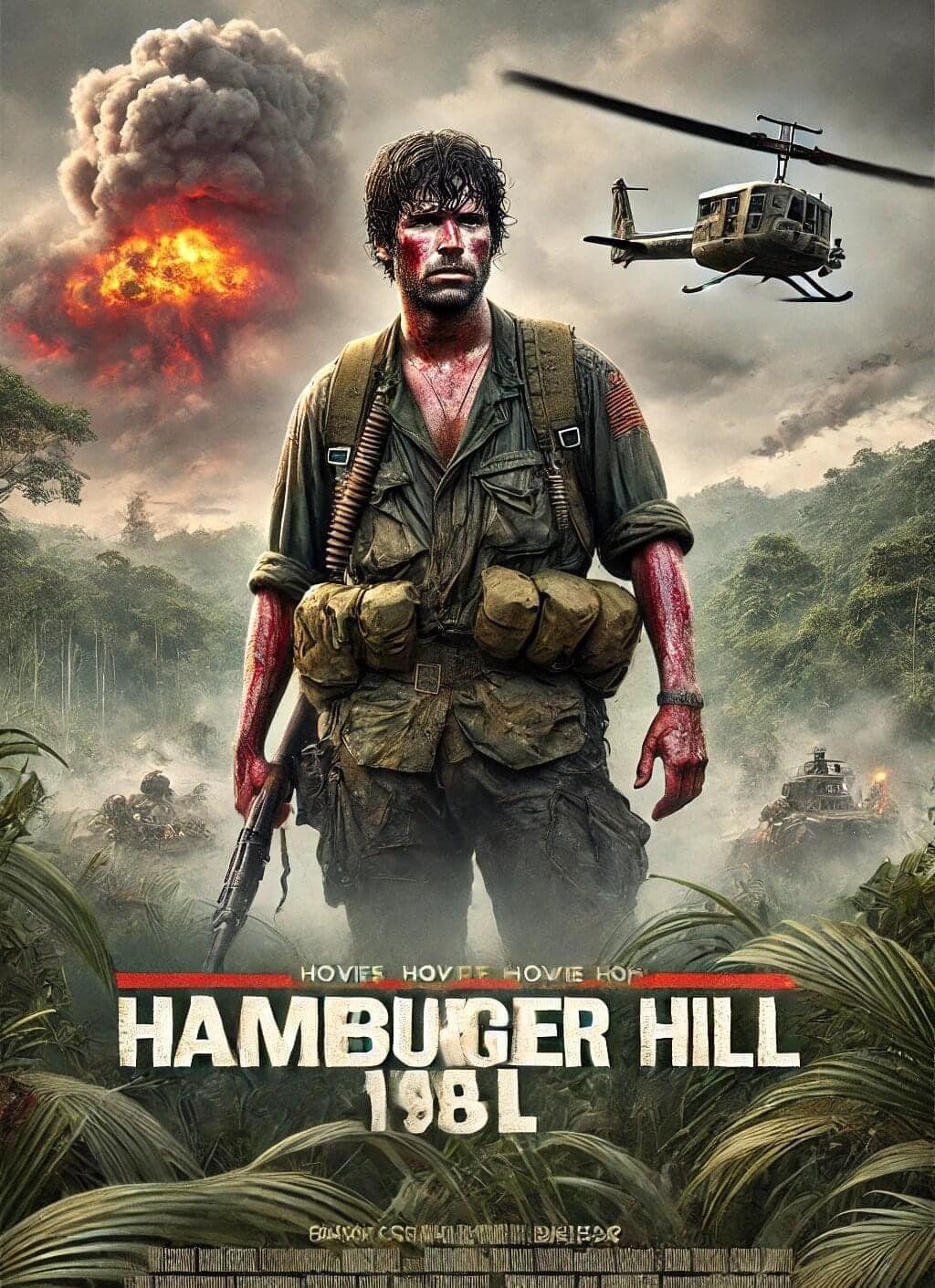Hamburger Hill (1987): A Gritty Look at Brotherhood and the Brutality of War

Hamburger Hill, directed by John Irvin and released in 1987, is one of the most harrowing and realistic portrayals of the Vietnam War to grace the silver screen. Based on true events, the film offers a raw depiction of the intense and devastating battle for Hill 937—grimly referred to as “Hamburger Hill” due to the horrific loss of life during the combat. This powerful war drama focuses on the unrelenting experiences of a platoon from the 101st Airborne Division, whose mission was to capture the hill at all costs, revealing the brutal reality of warfare and the bond that grows between soldiers in the face of death.
The Story and Its Heroes
The film centers around a group of soldiers as they confront the gruesome conditions of war and the punishing, often futile struggle to capture the strategically vital Hill 937. Among the key characters are Lieutenant Henry “Racetrack” (Don Cheadle), Sergeant “Ridge” (Andrew Divoff), and Private First Class “Corporal” (Dylan McDermott). Each character brings a unique perspective, highlighting the diverse backgrounds and personalities within the platoon. Together, they face relentless ambushes, unforgiving weather, and the ever-present threat of death, forming a deep camaraderie that binds them through the unyielding brutality of war.
Themes of Hamburger Hill
- The Futility and Cost of War
Hamburger Hill doesn’t shy away from depicting the horror and apparent senselessness of war. The soldiers fight endlessly to claim a hill that will later be abandoned, underscoring the futility of their efforts and the heavy price paid in human lives. This theme serves as a critique of the Vietnam War, where such battles often ended in tremendous sacrifice without clear, lasting victories. - Brotherhood and Unity Amidst Chaos
The intense camaraderie and mutual reliance among the soldiers is a central focus in Hamburger Hill. The brutal conditions bring the men closer, allowing them to lean on each other for both physical and emotional support. The shared hardship fosters a unity that becomes their strongest asset, helping them face the relentless combat together, demonstrating the unwavering loyalty that forms under such extreme circumstances. - The Psychological Toll of Warfare
Unlike many war films that emphasize action over consequence, Hamburger Hill explores the mental strain and emotional scars that war leaves on soldiers. As they endure the trauma of battle, the soldiers experience a range of emotions, from fear and despair to anger and numbness. These psychological effects remain long after the gunfire stops, providing a powerful reminder of the lasting impact of war on young men who often return home forever changed.
Cinematic Approach and Realism
Hamburger Hill is noted for its realistic portrayal of combat, using immersive cinematography and sound to capture the intensity and chaos of battle. The visceral action sequences place viewers in the soldiers’ shoes, making each assault feel immediate and impactful. The production team worked closely with Vietnam War veterans to ensure authenticity, from the uniforms and weaponry to the gritty, rain-soaked environments, heightening the film’s realism and evoking a genuine sense of danger.
Impact and Legacy
While Hamburger Hill didn’t achieve the same level of box-office success as other Vietnam War films like Platoon or Apocalypse Now, it has since garnered respect for its unfiltered portrayal of war and its focus on the human side of the conflict. Critics and veterans alike have praised the film for its accurate representation of the battle’s horrors and the powerful bonds that form among soldiers in such trying conditions.
Why Hamburger Hill Still Resonates
In portraying the tragic cost of war, Hamburger Hill resonates with audiences by showing the personal sacrifices and unity that arise in the darkest of times. Its unapologetic depiction of the futility of war, paired with the intimate look at brotherhood and trauma, makes Hamburger Hill a timeless examination of the human cost of conflict. The film serves as both a tribute to those who fought and a sobering reminder of the toll that war exacts on individuals, even after the battle is won or lost.











